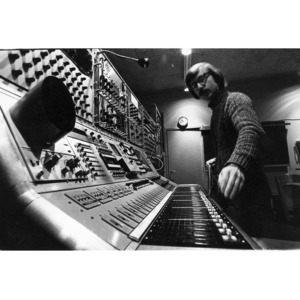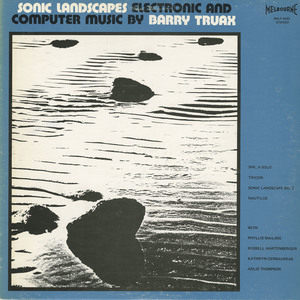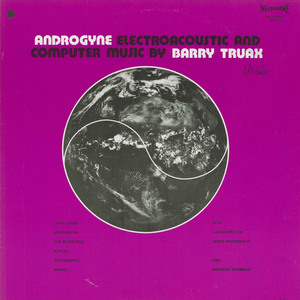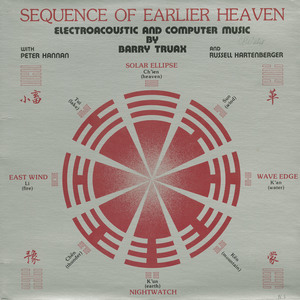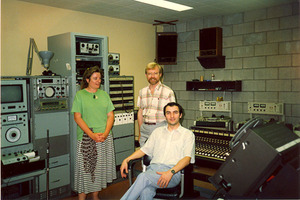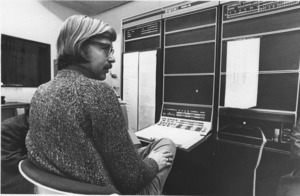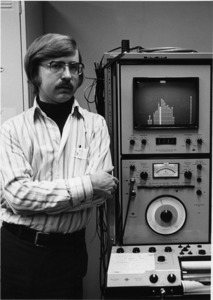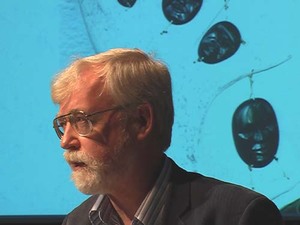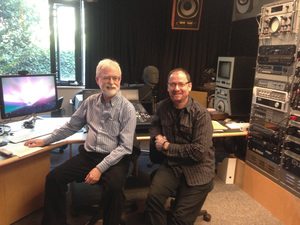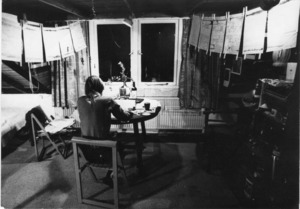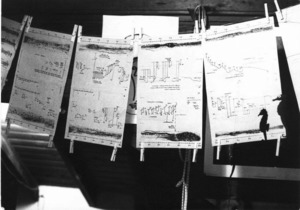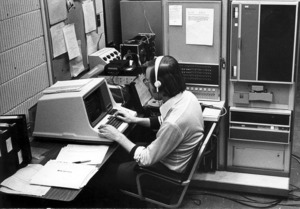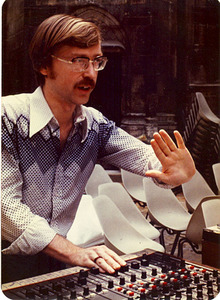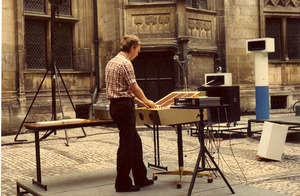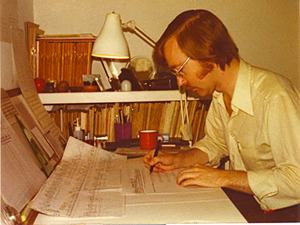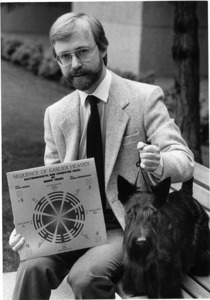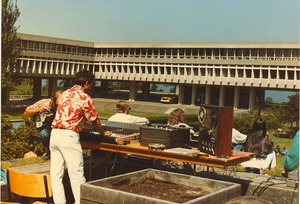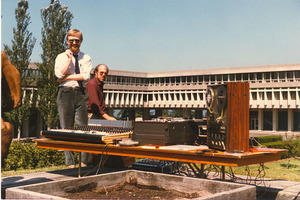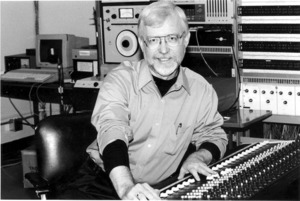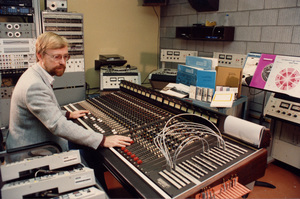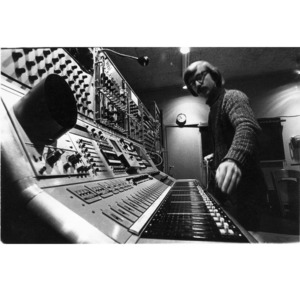Truax, Barry
Websites:
https://www.thecanadianencyclopedia.ca/en/article/barry-truax-emc, https://www.sfu.ca/~truax/bios.html
Origin:
Chatman, Ontario
Biography:
Truax, Barry (Douglas). Composer, soundscape researcher, b Chatham, Ont, 10 May 1947; B SC (Queen's) 1969, M MUS (British Columbia) 1971. After training in mathematics and physics at Queen's University and in composition with Cortland Hultberg at the University of British Columbia, Truax studied 1971-3 at the Institute of Sonology, Utrecht University, with G.M. Koenig and Otto Laske. He met R. Murray Schafer while attending the University of British Columbia and, at the end of his studies in Utrecht, Schafer invited him to Simon Fraser University to work on the World Soundscape Project. On his return to Canada in 1973, Truax therefore began teaching in the Department of Communication and at the Centre for Communication and the Arts, Simon Fraser University, and became a research assistant (and later research director) with the World Soundscape Project there. In 1985 he was conference director for the International Computer Conference in Vancouver. Later he worked on an advanced computer music board at Simon Fraser's Centre for Image/Sound Research (CISR). He served on the City of Vancouver's Urban Noise Task Force 1996-7.
Works
Though his first works (1969-71) were for acoustic instruments, Truax felt more drawn to electronic and computer composition. At Utrecht University and Simon Fraser University, he was the first to use real-time frequency modulation, a process that found its apogee in Solar Ellipse (1984-5). He also programmed computers as 'interactive compositional systems' for use by other composers and performers. The system, known as PODX, was used to achieve the first real-time granular synthesis, a method whereby 10-50 microsecond sound quanta, or "grains," from various sources (such as waveforms and samples) are organized in densities ranging from a few to thousands of events per second. This technique was used in Riverrun (1986) and Pacific (1990), where Truax honed the process to allow the prolonged sounds without changing pitch. His body of work includes combinations of traditional instruments and computer-synthesized soundtracks, electronic music, and tape music. He completed a multi-media opera, The Powers of Two (2004), while serving as composer-in-residence with Modern Baroque Opera. The work, which incorporates singers, electroacoustics, video, spatial lighting, and dance, is an exploration of "the nature of human desire and the quest for fulfillment in the contemporary world" (Modern Baroque Opera website). His works have been performed in North America, Europe, Australia, and New Zealand.
Truax's music is concerned with a "human scale to sound." Many of his samples are drawn from archives at the World Soundscape Project; he is careful about using references in his music that communicate to the public. He decries that ". . . people in computer music do not seem to have . . . broader concerns for social issues or the media . . . (Barry Truax website)." Elements of eastern mysticism have also permeated his later works, including Arras, Wave Edge, Riverrun, East Wind, and two multimedia works (Divan and Wings of Nike), which use computer-synthesized sound and computer graphics by Theo Goldberg. Truax's opera, perhaps his most personal work, addresses the social issue of sexual identity. Compositionally, his main focus is sound itself, from which he derives everything in a piece, even the overall structure, as is the case with his use of granular synthesis.
Recordings
Recordings devoted to his compositions include Sonic Landscapes (1977, Mel SMLP-4033), Androgyne (1981, 2-Mel SMLP-4042-43), Sequence of Earlier Heaven (1985, Cambridge Street CSR-8501) and the CDs Digital Soundscapes (1987, Cambridge Street CSR-CD-8701/Wergo WER-2017-50), and Pacific Rim (1991, Cambridge Street CSR-CD-9101). He founded the Cambridge Street label in 1985.
Awards; Memberships
In 1977 his Sonic Landscape No. 3 won first prize in the computer music category of the Fifth International Competition of Electroacoustic Music in Bourges. Riverrun won the Magisterium prize at the International Competition of Electroacoustic Music in Bourges, France, in 1991, making Truax the first Canadian to receive the award. Truax is a member of the Canadian League of Composers and the Canadian Electroacoustic Community, and an associate of the Canadian Music Centre. He began teaching electroacoustic composition and acoustic communication at Simon Fraser University in 1973, receiving a teaching excellence award in 1999.
Barry Truax is a Professor Emeritus in the School of Communication and (formerly) the School for the Contemporary Arts at Simon Fraser University where he taught courses in acoustic communication and electroacoustic composition, specializing in soundscape composition.
He has worked with the World Soundscape Project, editing its Handbook for Acoustic Ecology, and has published a book Acoustic Communication dealing with all aspects of sound and technology.
As a composer, Truax is best known for his work with the PODX computer music system which he has used for tape solo works and those which combine tape with live performers or computer graphics.
A selection of these pieces may be heard on the recording Sequence of Earlier Heaven, and the Compact Discs Digital Soundscapes, Pacific Rim, Song of Songs, Inside, Islands, and Twin Souls, all on the Cambridge Street Records label, as well as the double CD of the opera Powers of Two and the most recent CDs, Spirit Journies and The Elements and Beyond.
In 1991 his work, Riverrun, was awarded the Magisterium at the International Competition of Electroacoustic Music in Bourges, France, a category open only to electroacoustic composers of 20 or more years experience. He is also the recipient of one of the 1999 Awards for Teaching Excellence at Simon Fraser University.
Following his retirement from SFU (Sept. 2015), he became the Edgard Varèse Guest Professor at the Technical University in Berlin (2015-16), and Guest Composer at the 2016 BEAST Festival in Birmingham, where his multi-channel soundscape compositions have been performed, as well as at several other European festivals and ISCM 2017 in Vancouver, plus the 2018 ICMC in Korea where he was a keynote speaker.
Barry is an Associate Composer of the Canadian Music Centre, a founding member and Honorary Member of the Canadian Electroacoustic Community and a founding member of the World Forum for Acoustic Ecology.
